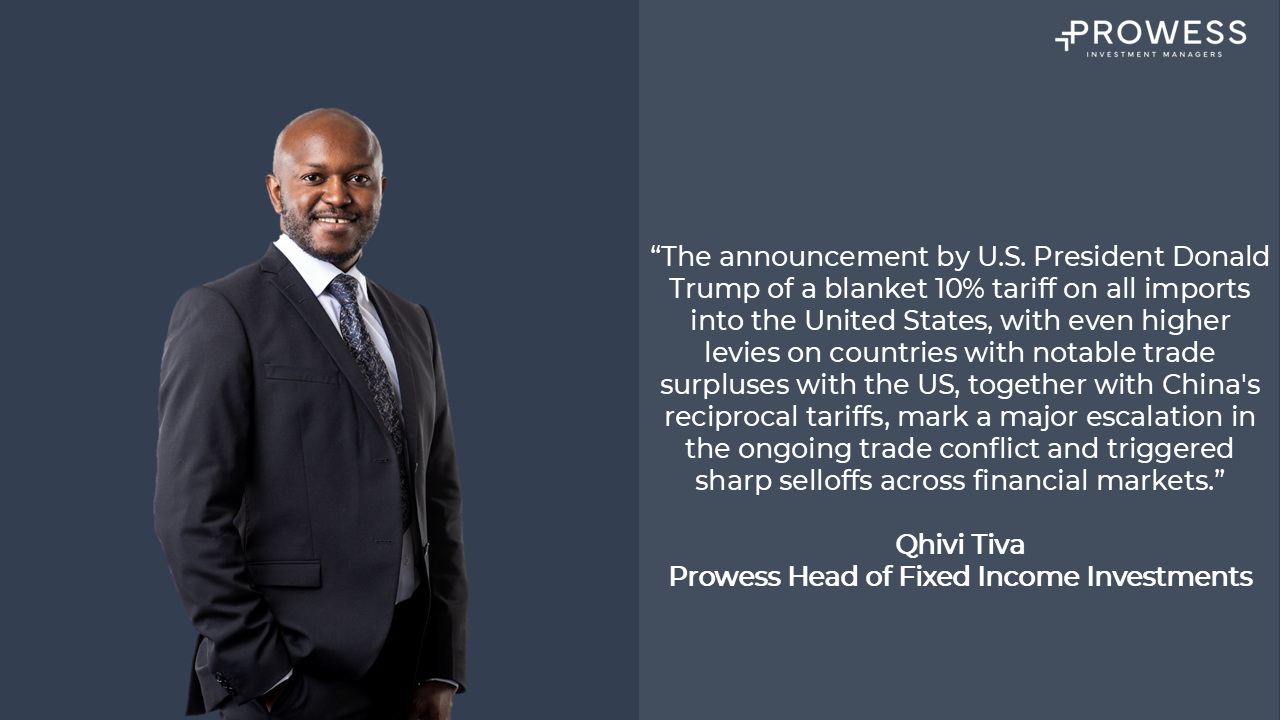Last week, markets declined in response to President Donald Trump’s announcement of higher-than-expected tariffs on all exports to the United States. This was swiftly followed by China’s announcement of retaliatory tariffs on U.S. imports, indicating a significant escalation in the ongoing trade dispute and raising concerns over the potential for a global recession. On the domestic front, the National Assembly narrowly approved the fiscal framework; however, uncertainty persists as legal proceedings have been initiated, citing procedural deficiencies in the approval process.
International Market Developments
Global markets experienced significant declines last week following the announcement by U.S. President Donald Trump of a blanket 10% tariff on all imports into the United States. Countries with notable trade surpluses with the US were particularly impacted, with the European Union facing a 20% tariff and China a sharply higher 34% levy. In a swift response, China imposed reciprocal tariffs of 34% on U.S. imports, marking a major escalation in the ongoing trade conflict. The European Union, meanwhile, has opted for a more measured approach, indicating a four-week negotiation window before initiating any retaliatory measures. These developments have heightened fears of a global economic slowdown, triggering sharp selloffs across financial markets.
On the monetary policy front, Federal Reserve Chair Jerome Powell reiterated the Fed’s “wait and see” stance, emphasizing that current conditions do not warrant an immediate interest rate cut. Fed officials acknowledged that ongoing trade tensions could elevate inflationary pressures but indicated that the central bank has room to assess the evolving situation before adjusting policy.
Local Market Developments
The South African rand came under pressure last week, driven by both global trade concerns and rising domestic political uncertainty. Delays in the passage of the national budget—stemming from internal disagreements within the Government of National Unity (GNU), including a potential withdrawal by the Democratic Alliance (DA)—have created additional market volatility.
Despite the tensions, the National Assembly narrowly approved the fiscal framework, which sets out the government’s macroeconomic strategy, revenue assumptions, and expenditure limits. The motion passed with 194 votes in favor and 182 against. However, the DA has indicated its intention to legally challenge the approval process, citing procedural irregularities.
The framework includes a controversial proposal to raise Value-Added Tax (VAT), which the DA firmly opposes. The party is advocating for the removal of the VAT hike, citing its potential impact on consumers.
In light of the global tariff escalation, the South African government has confirmed it will not pursue reciprocal measures against U.S. imports at this stage. Minister of International Relations Ronald Lamola emphasized South Africa’s commitment to maintaining constructive and mutually beneficial trade ties with the United States, while also expressing concern over the potential trade barriers imposed by the new tariffs.


